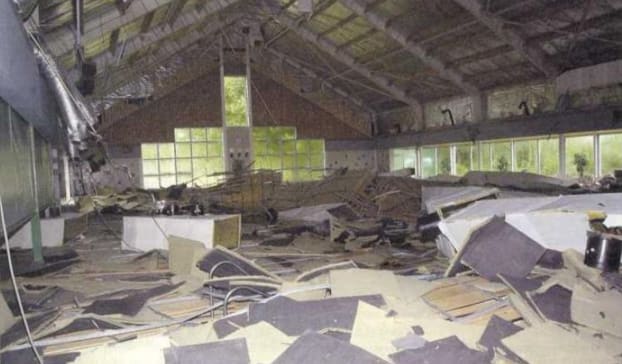
What is stress corrosion cracking and how does it affect fasteners?
- Read time: 3 minutes
- Date: 24 Jun 2021
- Sheeting & Cladding
- Rainscreen & Façades
- Flat Roofing
There are a number of high-risk environments where SCC can occur including swimming pools, sewage works, water treatment plants and energy from waste centres.
Unlike the ‘red rust’ typical of carbon steel corrosion, stress corrosion cracking is microscopic and not visible to the naked eye. However, it can have devastating consequences on the structural integrity of a building.
There have been well documented and catastrophic instances where load-bearing structures in swimming pools and leisure centres have collapsed due to corrosion. Aside from the potential for injury or loss of life, this could have severe consequences for the specifier and the installer, in terms of liability for compensation and even prosecution for criminal negligence.

How can I prevent stress corrosion cracking?
To prevent stress corrosion cracking in high-risk environments, such as swimming pools, sewage works, water treatment plants and energy from waste centres, only fasteners manufactured from High Corrosion Resistant (HCR) stainless steel should be used.
HCR stainless steel has increased levels of chromium, nickel and molybdenum which prevents SCC.

Do I need to use High Corrosion Resistant (HCR) fasteners if they are installed above a vapour barrier?
Where fasteners are installed above an effective vapour barrier as part of a roofing or cladding system, they are generally considered ‘non-safety critical’ with regards to SCC. So, providing fasteners do not penetrate the vapour barrier in any way, other grades of stainless steel can be used in accordance with the environment and desired life expectancy of the building.
It is essential that the building envelope has been designed and installed to ensure the vapour barrier is effective throughout the life of the roofing or cladding system.





